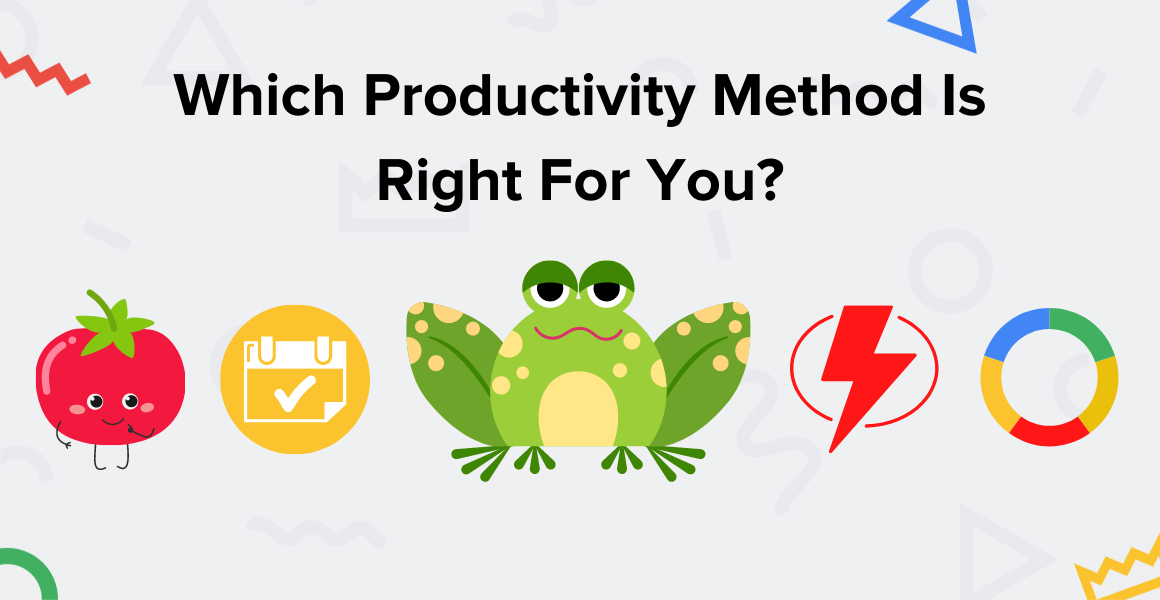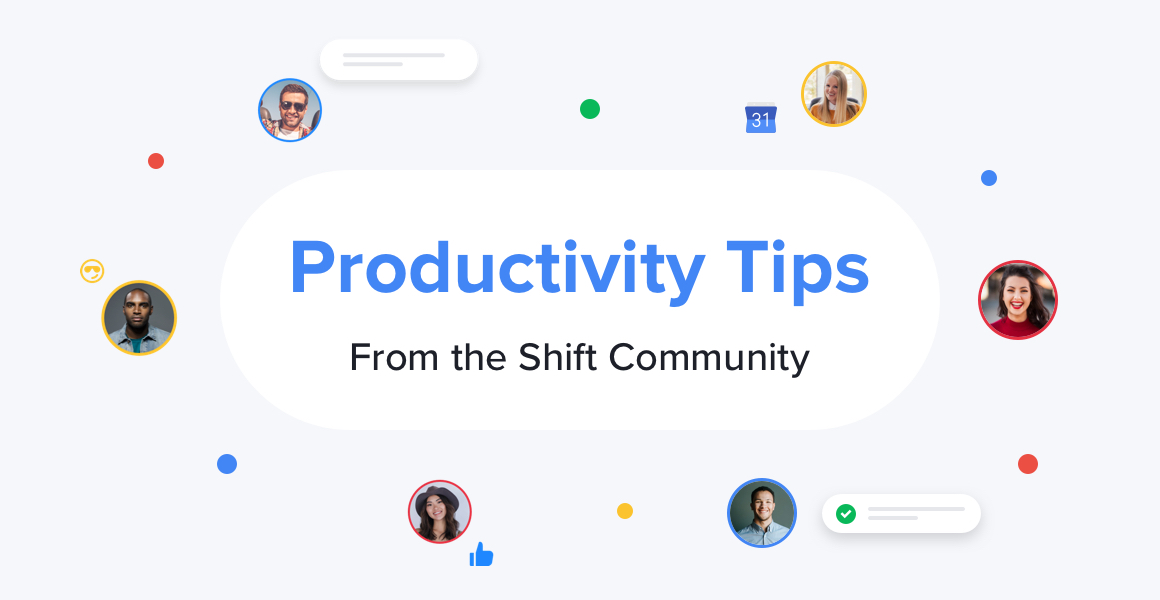Almost everyone is interested in being more productive. Busy-ness and an obsession with performance are key elements of our culture, and most people are constantly looking for ways to work smarter. There are countless articles out there about how to be more productive. The problem is that much of that information is outdated, incorrect, or even harmful. Instead of sticking with the same old advice, we encourage you to explore new ways of being your most productive self. Start by busting these 10 toxic productivity myths.
What is Productivity Anyway?
At its most basic form, productivity is output measured by input. Productivity often relates to business, but it can really be applied to all areas of life. It can be difficult to quantify productivity, and the results aren’t always straightforward or tangible. In business, it might be measured in the number of sales calls. In academics, it might be quantified by words written. In some cases productivity can’t be measured at all. Productivity is often conflated with time management, but they are two different things and not all productive people are good at time management. While time management is a range of tools and skills that promote the effective use of a person’s time, productivity is about the results that are achieved within a certain length of time. It’s important to remember that productivity is centered around outcomes. There are times when the most productive results don’t come from just managing a list of tasks.
Many people feel that Americans are overly concerned with productivity. There is a lot of research available that shows that our society is sometimes “obsessed” with productivity, sometimes to the point of having the opposite effect on their work. For this reason, productivity is a hot topic. It’s heavily researched, often an area of focus in corporate environments, and something that people try to perfect across several areas of their lives. For that reason, there is a lot of information out there about how to be more productive. As times change and we learn more about how humans operate, we can see that some of the common tactics discussed for promoting productivity aren’t actually helpful. Though much of this advice centers on theories that make sense, implementing these tactics isn’t always helpful.
In this article we are discussing common productivity myths that don’t help - and in fact can hurt - your productivity efforts.
Related Post: Which Productivity Method is Right For You?
Toxic Productivity Myths
As we mentioned, there is a lot of advice that you’ve probably heard regarding productivity. Research going back decades, as well as social behavior and norms, have informed these tactics - but research gets updated and behavior changes. Now, we have new research that talks about how to be more productive based on today’s psychology. Here are some often-quoted ideas that need to be reevaluated in today’s landscape.
1. Mimic the habits of very successful people
It’s incredibly common to read about how successful people stay productive. You can find endless advice about what people like Steve Jobs, Oprah, or Tim Cook do to remain productive. You’ll see lots of “hacks” like never missing a meeting, eating the same meal every day, or waking up at 3:45 am. That can be very interesting, but it’s not typically helpful to try to model your own behavior after these individuals. For one thing, for every successful person that you read about, there is likely someone else out there who practices the same habits but with less impact. Furthermore, it contributes to an overall idea that highly successful people maintain peak performance all the time, which can actually be demotivating. It’s important to think of highly successful people as an inspiration, but not an idol. Look for the ideas that could generally help you improve your productivity, but don’t try to replicate the exact habits of other people.
2. Maximize absolutely every moment
In our culture, it’s become incredibly common to think that you must make the most of every hour in every day - completing as much as you can, as fast as you can. Unfortunately, too much focus on making the most of your time can actually hinder your creativity. That’s because perpetually trying to be successful just goes against our human nature. Some research shows that we only have 3-4 hours of highly focused productivity each day. Too much focus on time management just makes people feel bad about the time that they’re wasting. The truth is that creative people rest often and tend to sleep a lot, which makes them better able to recharge their batteries. Focus on channeling your energy into the hours when you tend to be most productive each day. Realize that not every hour of your day needs to be busy or even productive. Instead, figure out what your most productive time of day is, and use strategies like time blocking to get the bulk of your tasks done in that time.
3. Set stretch goals
Does it ever seem to you like the most successful people are the most ambitious? While it’s important to have goals, making them too lofty can be discouraging. If you’re an aspiring writer, deciding that you’re going to publish a ground-breaking novel is going to be a lot of pressure. Similarly, if you’re trying to start a running regimen, signing up for a marathon might be setting you up for disappointment. Research from the University of Chicago and the Korea Business School found that focusing too heavily on goals was correlated with dropping out earlier. Over the long term, you may end up finding the activities needed to meet your goal too daunting. Plus, being too focused on the end result can take some of the pleasure out of the activities required to pursue the goals. To have truly sustainable productivity habits, it’s smart to build up with easily achievable tasks. Start small and continuously take on more and more, so that you don’t lose steam or get discouraged. Come up with a manageable, regular routine, and these small tasks will add up to impressive results over time.
4. Over-complicating your productivity technology
Today’s digital landscape makes it easier than ever to take advantage of productivity platforms. Adding or tweaking your productivity apps can help you to feel like you’re doing something - but just make sure that you don’t spend much of your productivity on managing apps! It’s too easy to find yourself spending a lot of time on managing applications, and not taking real action toward your goals. Finding the right app or system can really help. We like apps that not only help you to track tasks, but help you to prioritize work and to-do items. Otherwise, you’re likely to reach diminishing returns, where optimizing our productivity apps takes away from important work.
Pro tip: Shift can help you to streamline all of your productivity apps so that you don’t need to constantly log in and log out. Shift is the desktop app for streamlining and collaborating across accounts and workflows, and can help you to collaborate and get more work done. This means you can use several different productivity or work apps, but in a more efficient way.
Related Post: How to Get All Your Apps in One Place
5. Motivate with rewards
Our culture heavily relies on external rewards such as money or prestigious titles. These things are helpful to some extent, but we all know the cliche that money doesn’t buy happiness. The truth is that most humans derive their most meaningful and sustainable productivity through what’s called “intrinsic motivation”. If people find a task naturally engaging, they are more likely to focus on it. In fact, if an external reward is linked to an endeavor, it can actually displace that intrinsic motivation. Research has even found that if an external reward is eventually removed from the picture, people will have trouble getting their original motivation back. Take steps to cultivate intrinsic motivation. Consider the values that are most important to your life, and then use those to set priorities and determine what skills you need to work on. Focus on the process rather than the outcome, taking pleasure in your day-to-day life instead of just the end goal.
6. Thinking willpower is finite
Willpower is one of the most studied aspects of human psychology. Conventional wisdom shares that resisting temptation and exerting willpower is a cognitively challenging task, which can diminish people’s ability to perform. Newer research suggests that willpower is more variable, with a lot of cultural influences. Related research suggests that participants who believe willpower is unlimited show fewer signs of ego depletion compared to those who believe there are limits. It’s important to build up your willpower over time, using positive affirmation and developing good habits. Small rituals can really help to enhance your willpower - and therefore productivity - over time. As your actions become a habit, they won’t require willpower at all. For example, if you want to start a workout routine, at first you may need to leverage extensive willpower to get up and get moving in the morning. As time goes on, however, those habits will feel natural and won’t require any willpower at all.
7. Visualize achieving your goals
Many people believe that being able to see your goals is the key to achieving them. Visualization techniques have become popular over the last decade, enabling people to actually see themselves completing important objectives. The truth is, these techniques have merit, but can also be energy-sapping. In fact, visualization fantasies can cause us to become complacent, rather than continuing to reach higher. Positive fantasies are a poor predictor of success because they don’t actually generate the energy to take action. Furthermore, people tend to get more discouraged by setbacks, because in their fantasies things go off without a hitch. When you’ve been envisioning a smooth route to your goal, it can feel extra frustrating when obstacles occur. A more productive practice is to focus on “critical visualization” where you envision realistic obstacles or setbacks, and how you will handle them. Think about what you can do if things go wrong, so that you’re better able to adapt to issues and continue on toward larger goals.
8. Over-schedule
Chances are, everyone you know is busy. Does that stop them from adding more to their schedule? Modern American work culture traps people in a cycle of busy-ness, and that carries over to all aspects of our lives. There is a common belief that to achieve more, we need to commit to more. However, busy-ness can often lead to confusion about priorities. A few ways to differentiate being productive from being busy are to have clearly specified goals versus more broadly defined ones. Additionally, having multiple priorities and working on multitasking is less productive than having clear priorities and a singular focus. Experts also suggest people pay close attention to how many things they say yes to, and how those things help them to meet their ultimate goals. You can start by determining just three important things you’ll mark off your to-do list each day, implementing a one-hour electronic blackout period, and saying no to things that don’t advance your key goals.
9. Focus on a strict regimen
It’s easy to picture highly productive people as those that rise early, jot down a lengthy to-do list, and energetically pursue crossing off those tasks. But having a strict regimen can be hard to maintain. Then, feeling bad about not being able to stick to a rigid routine invites self-criticism, which is ultimately unproductive. Rather, be supportive of yourself and realistic about challenges you face. Try positive self-talk and be as compassionate with yourself as you would be with another person. Rest is important, so if you need to take a break in a busy schedule, do so. Schedule your days based on what you have going on and the key things to accomplish. Habits and a routine are great, but don’t use those things to beat yourself up.
10. Always think positively
Though thinking positively and having a good attitude can help you to get more done (and feel better along the way), this can be taken too far. It’s important to know that you don’t need to enjoy every step of a project in order to get a good outcome. You don’t need to feel positively about every aspect of an effort in order to do it well. Accept that stress and challenges are part of the goal pursuit process. Use any negative emotions as a catalyst for getting better results.
Related Post: Personalized Productivity: What's Your Personality Type?
Modern Productivity Tips
Now you know which common productivity tips to ignore. What does the latest research tell us about maximizing productivity?
Stop multitasking
Juggling several tasks at once rarely leads to optimal outcomes. Focus on a single task at a time and give it your best effort.
Set smaller goals
Large projects can often feel overwhelming, so breaking them into smaller phases will be helpful. Create momentum by choosing manageable tasks that you can do effectively and well.
Take breaks
Many people equate resting with being less productive, but the opposite is true. Many highly successful people are sure to get the sleep they need, and pause their efforts when they feel overwhelmed. It’s important to give yourself time to enjoy your life, and step away from work so that you can return with renewed focus.
Implement a “five minute” rule
Many people struggle with procrastination. However, if you can commit to yourself that you’ll only spend “five minutes” (or whatever time you decide) on a task, you’ll be less likely to put it off. When you feel like procrastinating, set a timer for the work to be done, and stop when it goes off.
Try time blocking
Using time blocks is a well-known productivity strategy. When you create time-block periods in your day, you are making a conscious decision of how to spend your time. Try 60 or 90 minute time blocks, and you may want to color code or develop a printed system as well.
Related Post: Productivity Tips + Tricks From You: The Shift Community
Productivity myths aren’t inherently bad. Many of them stem from conventional wisdom and do offer helpful insights. The problem is that many of them are not realistic and do not enable real, sustainable change. Toxic productivity myths can make people feel like a failure if they can’t live up to them - and living up to them is often a challenge. As you consider how to work smarter, make sure you don’t focus on productivity for productivity’s sake - and instead you focus on productivity in order to meet your important goals. This will help you to accomplish the things you really care about, instead of just staying busy. Hopefully these tips support you in enjoying your work and challenging yourself - while managing realistic expectations.
If you’re looking for technology to streamline your various apps and accounts, look no further than Shift. Shift helps you to organize your work and personal accounts and integrates with the other apps that you use on a daily basis so that you can take your productivity to a new level.



















 Share on Facebook
Share on Facebook Share on Twitter
Share on Twitter







